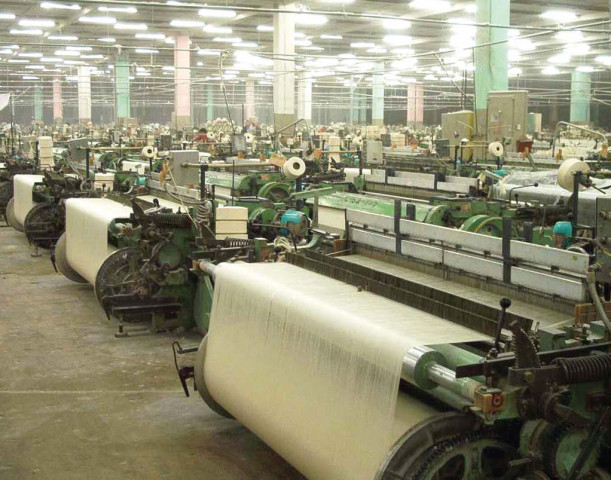Textile spinning, value-added sectors express reservations
Aptma has said that the implementation of the EU package will not result in a shortage of yarn in the local market.

The textile spinning sector has asked the federal ministry of trade and commerce to announce its future export policy on yarn before the implementation of the package. The textile value-added sector has claimed that the duty-free import of yarn from Pakistan will prove detrimental to the local value-added industry.
According to All Pakistan Textile Mills Association (Aptma) Vice Chairman Yaseen Siddiq, the package will increase the output of textile products by $500 million in the first year and that may increase further in the years that follow. However, he said that this would require the development of a balanced export policy.
He added that due to an incoherent export policy last year, the export of yarn was affected adversely which in turn affected the production of cotton this year and led to the shortage of raw material.
The productivity and quality of related sectors must be developed to fully gain the benefits of the package and no limits should be placed on the export potential of any sector, he said, adding the spinning sector should be taken into confidence by the minister for commerce while developing the policy.
Siddiq said that if the government were to limit the spinning sector’s exports, then the purchase of cotton will be reduced by the sector to protect itself.
Aptma has said that the implementation of the EU package will not result in a shortage of yarn in the local market since yarn exports were $115 million this year and are expected to increase to $150 million after the package. The millers said that the EU imports high-quality yarn whose composition is different from the yarn exported to China and Italy. The spinning sector will import cotton from abroad which will not result in a shortage of yarn in the local market, they said.
The value-added sector has called for a press conference on Tuesday to express its reservations about the package. A source from within the sector said that the value-added sector will appeal for a limit or quota on the export of yarn.
Earlier, these sectors had expressed their concerns at a meeting of the ministry of commerce. When the Secretary for Commerce Zafar Mahmood proposed the development of a special policy for the export of yarn, the spinning sector reacted immediately. Mahmood then said that no sector will be placed in hardship to implement the package and any decision will be taken after multilateral discussions and market analyses.
The EU has provided import concessions for 75 Pakistani products for its markets. Yarn and grey fabric top the list of products.
Published in The Express Tribune, October 19th, 2010.



















COMMENTS
Comments are moderated and generally will be posted if they are on-topic and not abusive.
For more information, please see our Comments FAQ